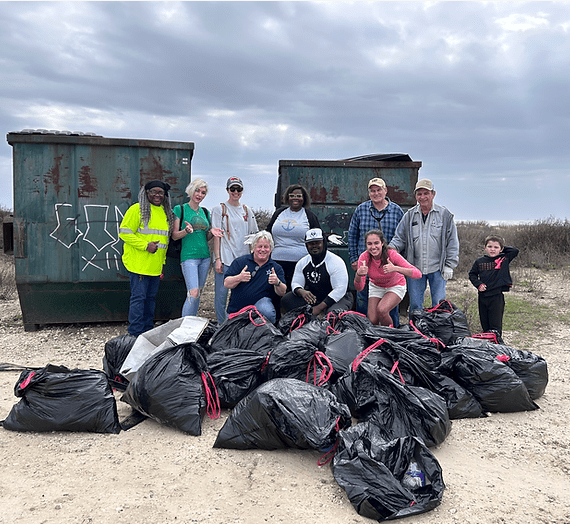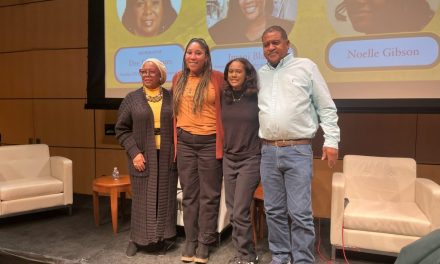By Sabrina McCrear
Howard University News Service
Lancet Countdown on Health and Climate Change released ahead of COP 28
The climate crisis is a health crisis, experts emphasized on Nov. 15 during the release of the 2023 Lancet Countdown on Health and Climate Change policy brief.
“Protecting human health and health equity must be a central consideration in the transition to health and renewable energy,” said Naomi S. Beyeler, co-director of the Evidence to Policy Initiative and lead for the Climate Change and Health Initiative.
Improving air quality in the most impacted communities should take precedence, Beyeler said. There is a severe health equity imbalance, especially for those in underprivileged communities.

“Those that contribute the least to the climate crisis are the ones being most affected,” said Marina Romanello, executive director of The Lancet Countdown.
The Lancet Countdown is an annual independent report on governmental action worldwide to address climate change under the Paris Agreement. The U.S. policy brief is released in addition to the global report in partnership with the American Public Health Association.
During the launch, experts also shared their perspectives on the 5th National Climate Assessment (NCA5), which was released a day earlier and is mandated by the Global Change Research Act of 1990.
The launch precedes the 28th session of the United Nations Framework on Climate Change Conference, known as COP 28, which is scheduled from Nov. 30 to Dec. 12 in Dubai. This is the first session that will have an entire day dedicated to the human health risks and solutions of climate change.
Numerous issues were covered during the briefing. The main focus was the impact climate change has on underserved and overburdened communities — commonly populated by Black, brown and indigenous people. More often than not, these communities experience firsthand the effects of climate change. Many of them border oil refineries, power plants and highways.
One speaker highlighted her experience living in an overburdened community during a panel titled, “Taking Stock of Where the U.S. Stands on Healthy Climate Action,” moderated by Dr. Georges Benjamin, executive director of the American Public Health Association.
“I am a mom of six. Two of my children have asthma,” said Roishetta Ozane, founder of the Vessel Project in Louisiana, a small mutual aid and environmental justice organization. “My community smells like rotten eggs mixed with Clorox. If you come here, you’re gonna get a headache. You’re gonna feel sick. You’re not gonna wanna stay here. But this is where we live every day.”
Ozane’s concerns were directed toward actions that need to be taken to increase accessibility to health care in communities like hers in the Lake Charles area of southwest Louisiana. Health complications ignited by climate change continue to grow.
Another panelist, Jeni Miller, executive director of the Global Climate and Health Alliance, responded to Ozane’s comments explaining that the anecdotal effects of climate are rarely discussed during the U.N. conference, if at all.
“There has not been a clear focus on the need to phase out fossil fuels as an imperative in order to protect people’s health,” Miller said.
Adm. Dr. Rachel L. Levine, assistant secretary for health in the U.S. Department of Health and Human Services, cited several examples of how health is being harmed. New York State documented an 82% increase in asthma-related cases caused by air pollution, Levine said. Additionally, 127 million more people are experiencing food insecurity as a result of flooding and drought.
“We’re moving in the wrong direction and promoting the burning of the health-harming fossil fuels,” Romanello said.
When fossil fuel-producing facilities flare, they release hazardous gases into the air like methane and benzene. These gases can pose health risks upon inhalation like asthma, pneumonia, bronchitis and heart disease.
The panelists expressed their concerns and hopes for the COP 28. “Climate change is affecting all of us in the United States; the difference is it’s affecting us in very different ways,” said Margot Brown, senior vice president of justice and equity at the Environmental Defense Fund.
Speakers said there is no cookie-cutter way to cater to the needs of communities suffering from the diverse effects of climate change. “We must end development of new fossil fuel infrastructure; phase out exports of coal, oil and gas; and drastically reduce investments in and subsidies for fossil fuels, while dramatically accelerating investments in non-polluting renewable energy,” Beyeler proposed.
Renewable energy sources like wind and solar are alternatives to fossil fuels and reducing emissions. The Biden administration developed a new Office of Climate Change and Health Equity in January 2021. Under Adm. Levine, the office’s initiative is to pour funding into renewable energy projects.
“The Biden administration has been big on funding and investing in safer and healthier futures for every community,” Brown said.
The 2023 Lancet Countdown concluded with closing remarks by Dr. Renee N. Salas, lead author of the U.S. brief and a member of the global working group of 114 experts and 52 institutions and research agencies dedicated to solving climate change.
“There is an entire collaborative community that makes this work possible,” Salas said. “Climate change continues to bring people together across silos because it cannot be solved by one person, institution, state, sector or country.”
Sabrina McCrear is a health and science reporter for HUNewsService.com.
The post U.S. experts sound alarm on climate health crisis in new report appeared first on AFRO American Newspapers .











